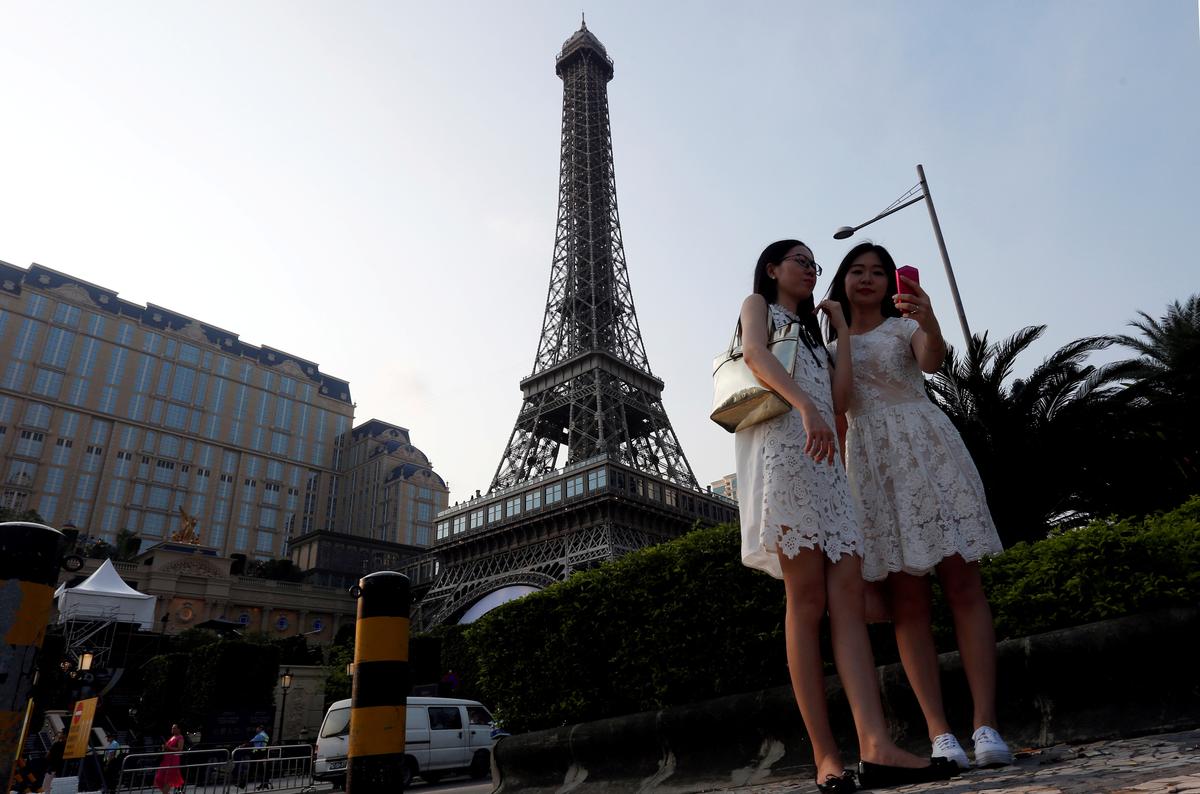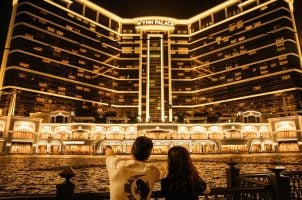Sands Should Benefit as Macau Recovers Faster Than Other Gaming Markets
Posted on: August 16, 2020, 05:45h.
Last updated on: August 17, 2020, 12:01h.
Macau is likely to recover from the ill effects of the coronavirus pandemic more rapidly than Las Vegas and Singapore, according to Fitch Ratings. That could be to the benefit of Las Vegas Sands (NYSE: LVS), the largest operator in the special administrative region (SAR).

Leaning on the notion of pent-up demand, analysts said over the course of 2020 that Macau would be the first major gaming region to recover, noting that the rebound will be hastened by the SAR’s proximity to mainland China. That thesis received a significant boost last week when authorities in Guangdong province said they will reissue tourist visas on Aug. 26, with the rest of China expected to follow on Sept. 23.
Macau recovery is integral for Sands. That’s because it controls five integrated resorts there and depends on the Chinese territory for two-thirds or more of revenue and earnings before interest, taxes, depreciation and amortization (EBITDA) in any given quarter.
The world’s largest gaming hub is also vital to LVS over the near-term because it could take a while for Singapore and Las Vegas to return to pre-pandemic levels.
In Las Vegas, domestic and international visitation remains muted since casinos opened there in June, and near-term prospects for group business remain dim as coronavirus infections remain elevated in the US,” said Fitch.
“In addition, air capacity is well below normal levels. LVS’ Marina Bay Sands in Singapore reopened in early July, but tight air capacity and regional travel restrictions (including at the border with Malaysia) is keeping volumes largely limited to Singapore residents,” he continued.
The ratings agency lowered its outlook on LVS’s credit rating of BBB- to “negative” from “stable.”
Macau in Pole Position
With news that Guangdong is restarting individual visit scheme (IVS) visa issuance, Macau gross gaming revenue (GGR) numbers could, after several months of declines of 90 percent or more, turn for the better in the third quarter and into year-end.
Meanwhile, Singapore’s recovery hopes hinge largely on relaxation of travel controls and implementation of a bubble with Malaysia, the city-state’s second-largest feeder market. By the operator’s own admission, Las Vegas is currently a tough place to be because many travelers don’t want to fly, owing to COVID-19. Additionally, lost convention traffic has weekday occupancy rates in the low 30 percent area.
With its home market accounting for a small percentage of its top and bottom lines, and recovery opportunities more readily available overseas, LVS is focusing capital spending on the Asia-Pacific region.
“LVS has $1.1 billion left to spend in Macau to finish converting Sands Cotai Central into the Londoner and building out suite towers at the Four Seasons Macao,” said Fitch. “LVS will also spend $3.3 billion in Singapore (including a $1 billion one-time payment already made in second-quarter 2019) in the medium term to expand Marina Bay Sands with a new hotel tower, 15,000-seat arena, and MICE space,” the last referring to Meetings, Incentives, Conferences and Exhibitions.
Dividend Talk
In April, LVS scrapped its dividend in an effort to conserve cash. But some market observers believe that as gaming industry recovery takes hold, the operator will move swiftly to restore the payout.
Fitch highlighted “LVS’ commitment to a conservative financial policy, strong liquidity profile,” but noted the operator’s dividend restart should be “commensurate with the recovery.”
“The timing for dividends resumption and the amount at which they will be restarted are uncertain, but Fitch assumes they will restart in 2H21 at pre-pandemic levels for the purpose of its rating case forecast,” said the ratings agency.
Related News Articles
Coronavirus Contagion Crimping Cash Flow For Macau Casino Operators
Goldman Sachs Says Wynn Can Rally – if Coronavirus Fears Prove Overhyped
Macau Casino Stocks Worth Revisiting After Declines, Says Analyst
Most Popular
LOST VEGAS: The Foster Brooks Robot at MGM Grand
Bally’s Sets Date for Tropicana Las Vegas Implosion & Party
Most Commented
-
VEGAS MYTHS RE-BUSTED: You Don’t Have to Pay Resort Fees
— August 2, 2024 — 16 Comments -
VEGAS MYTHS RE-BUSTED: Elvis Was a Straight-Up Racist
— August 9, 2024 — 11 Comments -
ANTI-SOCIAL BEHAVIOR: Vegas Casino Buffet Stunt in Poor Taste Goes Viral
— August 16, 2024 — 7 Comments -
VEGAS MYTHS RE-BUSTED: The Strip Tried Appealing to Families and Failed
— August 23, 2024 — 7 Comments
















No comments yet